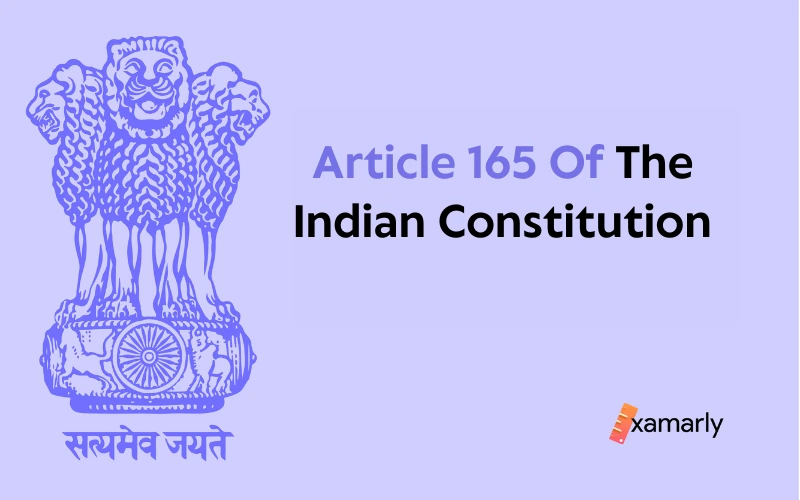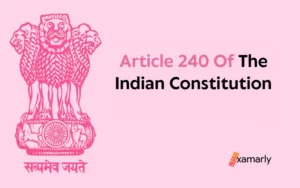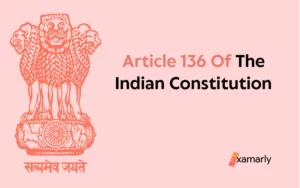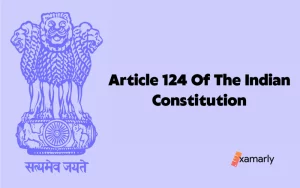Do you know about Article 165 of the Indian Constitution? How does it relate to the Advocate-General for a State?
Article 165 of the Indian Constitution deals with the appointment of an Advocate General for each State. This law was created to ensure that all legal matters in a state are handled by a qualified professional and protect the interests of all citizens.
An understanding of Article 165 is essential to understand its place in our constitutional framework.
The Advocate-General is the guardian of public interest and must act on behalf of the state with impartiality, fairness, and integrity. In this article, we will discuss in detail what Article 165 states and its importance in regard to appointing an Advocate-General for a State.
Article 165 Of The Indian Constitution
Article 165 of the Indian Constitution utters about “Advocate-General for the State.” The Constitutional provisions of the said Article are detailed in three clauses which are mentioned below:
Clause 1: Qualifications For Appointment
The Advocate-General for the State is chosen by the Governor of each State from among those eligible to serve as judges of the High Court.
- That is, he or she must be an Indian citizen who has served in a judicial capacity for ten years or who has worked as a high court advocate for ten years.
Clause 2: Duties
The Advocate-General is responsible for carrying out the duties entrusted to him by or under this Constitution or any other law currently in effect, as well as any other legal character obligations that may from time to time be delegated to him by the Governor. He is also responsible for providing advice to the State’s government on a variety of legal issues.
Clause 3: Term Of Office And Remuneration
The Advocate-General serves at the leisure of the Governor and is paid in accordance with his or her decision.
- The Constitution does not stipulate a certain length of time for the Advocate General’s tenure in office or the criteria for dismissing him or her from office.
- The Advocate General serves in his or her position at the pleasure of the Governor of the State, which implies that the Governor has the authority to remove him or her from office at any moment.
- The Indian Constitution does not set a cap on the Advocate General of State’s salary. Instead, it varies among the States of India. In India, the advocate general’s remuneration is set by the governor of the respective state.
Comparison Between Article 165 And Article 76
The office of the Attorney General of India is described in Article 76 of the Indian Constitution, while that of the Advocate General of India is described in Article 165.
Due to the fact that the Advocate General of State is the chief law officer in the state and the Attorney General of India is the highest-ranking law officer in India, the two positions are analogous to one another.
The Advocate General is responsible for overseeing legal matters pertaining to the state, while the Attorney General of India is in charge of overseeing legal matters pertaining to the union or the national government.
Articles Related To Advocate General
The following table includes a list of articles pertaining to the position of Advocate General of State:
| Articles | Details |
| Article 165 | Office of the State’s Advocate General |
| Article 177 | The rights of the State’s Attorney General with regard to the Houses of the State Legislature and the Committees of those Houses |
| Article 194 | Advocate General’s authority, perks, and immunity |
List Of Advocate General Of State
The list of state-wise advocate general in India is given below:
| State Of India | Advocate General |
| Andhra Pradesh | Subrahmanyam Sriram |
| Arunachal Pradesh | |
| Assam | Devajit Lon Saikia |
| Bihar | Lalit Kishore |
| Chhattisgarh | Satish Chandra Verma |
| Goa | Devidas Pangam |
| Gujarat | Kamal Trivedi |
| Haryana | Baldev Raj Mahajan |
| Himachal Pradesh | Ashok Sharma |
| Jharkhand | Rajiv Ranjan |
| Karnataka | Prabhuling K. Navadagi |
| Kerala | K Gopala Krishna Kurup |
| Madhya Pradesh | Prashant Singh |
| Maharashtra | Ashutosh Kumbhakoni |
| Manipur | Lenin Singh Hijam |
| Meghalaya | Amit Kumar |
| Mizoram | Diganta Das |
| Nagaland | K. N. Balagopal |
| Odisha | Ashok Parija |
| Punjab | Vinod Ghai |
| Rajasthan | Narpat Mal Lodha |
| Sikkim | Vivek Kohli |
| Tamil Nadu | Thiru R.Shunmugasundaram |
| Telangana | B. S. Prasad |
| Tripura | Siddhartha Shankar Dey |
| Uttar Pradesh | Ajay Kumar Mishra |
| Uttarakhand | S. N. Babulkar |
| West Bengal | Advocate SN Mookherjee |
Note: After Nilay Ananda Dutta’s death on September 19, 2021, the position of Advocate General for the state of Arunachal Pradesh has been unfilled.
Reference – [Wikipedia]
Conclusion
The State’s attorney general is equivalent to India’s attorney general. As a result, in India’s federal system, the office is crucial to the day-to-day operations of the state governments.
For Further Readings:
| Advisory Jurisdiction Of Supreme Court | Article 154 Of The Indian Constitution (Executive Power Of State Governor) |
| Article 164 Of The Indian Constitution | Article 147 Of The Indian Constitution |
FAQs On Article 165
Which Constitutional Article Defines The State Advocate General’s Office?
The post of the Advocate General for the State is outlined in Article 165 of Chapter 2 (The Executive) in Part VI (The States) of the Constitution of India. The Advocate General for the State is the highest-ranking law official in the State.
Who Is Eligible To Be Named The State’s Advocate General?
The Governor of the State appoints the Advocate General, and that individual must have the requisite qualifications to serve as a judge in a High Court. However, the person for the appointment to the post of AG of State is advised by the Council of Ministers to the State Governor.
How Long Does A Person Serve In The Role Of Advocate General Of The State?
The Constitution doesn’t say how long the Advocate General is in charge, nor does it say how or why he or she can be dismissed. The State’s Governor may at any moment remove the Advocate General from office because that official serves at the Governor’s pleasure.
What Are The Duties Of Advocate General As Per Article 165?
Listed below are some of the major duties of the Advocate General of the State:
1. He has a duty to counsel the state government on any legal subject matter that the governor directs to him for assistance.
2. Additionally, he is required to carry out all legal obligations that the State Governor has handed him.
3. He is required to abide by the Constitution in regard to any obligations and powers that are specified within it or any other constitutional statute.






